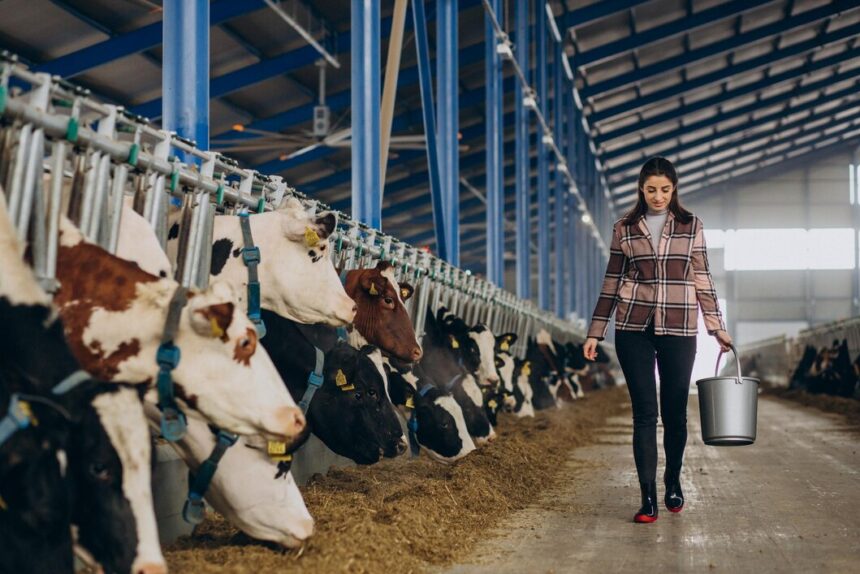Animal husbandry is a critical component of agriculture that focuses on the breeding and care of livestock for various purposes, including meat, milk, wool, and labor. In South Africa, where livestock farming plays a significant role in the economy and food security, understanding the basics of animal husbandry is essential for successful farming practices. This article provides a comprehensive overview of the fundamental principles of animal husbandry for South African farmers.
1. Choosing the Right Livestock
Selecting the appropriate breed of livestock is crucial for successful animal husbandry. Factors to consider include:
- Purpose of Farming: Determine whether you want to raise animals for meat (e.g., cattle, sheep), milk (e.g., dairy cows, goats), or other products (e.g., chickens for eggs).
- Local Adaptation: Choose breeds that are well-suited to the local climate and environment. For instance, Nguni cattle and Boer goats are known for their adaptability to South African conditions.
- Market Demand: Research the local market to understand which livestock products are in demand.
2. Proper Housing and Shelter
Providing adequate shelter for livestock is essential for their health and well-being. Consider the following:
- Space Requirements: Ensure that there is sufficient space for animals to move freely, with separate areas for feeding, resting, and exercising.
- Ventilation: Proper ventilation helps maintain air quality and reduces the risk of respiratory diseases.
- Protection from Weather: Shelters should protect animals from extreme weather conditions, such as heat, cold, and rain.
3. Nutritional Management
Proper nutrition is vital for the growth, reproduction, and overall health of livestock. Key considerations include:
- Balanced Diet: Provide a balanced diet that includes carbohydrates, proteins, vitamins, and minerals. Consult with a livestock nutritionist to formulate appropriate feed rations.
- Forage Quality: Ensure access to high-quality forage and grazing land. Incorporating legumes can enhance the nutritional value of pastures.
- Supplementation: Depending on the nutritional needs of your animals, consider supplements such as vitamins and minerals, especially during dry seasons.
4. Health Management
Maintaining the health of livestock is essential for productivity. Effective health management includes:
- Regular Veterinary Care: Schedule routine veterinary check-ups, vaccinations, and deworming to prevent diseases.
- Biosecurity Measures: Implement biosecurity protocols to prevent the introduction and spread of diseases. This includes controlling access to farms, disinfecting equipment, and isolating sick animals.
- Observation: Regularly observe animals for signs of illness, such as changes in behavior, appetite, or physical appearance.
5. Breeding Practices
Understanding breeding practices is vital for improving livestock quality and productivity. Key points include:
- Selective Breeding: Choose breeding stock based on desirable traits such as growth rate, milk production, and disease resistance.
- Breeding Schedule: Develop a breeding schedule that aligns with the farming goals, ensuring that animals breed at appropriate times for optimal productivity.
- Record Keeping: Maintain accurate breeding records to track lineage, performance, and health.
6. Waste Management
Proper waste management is crucial for environmental sustainability and animal health. Consider the following:
- Manure Management: Implement strategies for managing manure, such as composting or using it as fertilizer for crops. This not only reduces environmental impact but also provides a valuable resource.
- Sanitation: Maintain cleanliness in animal housing to prevent disease outbreaks. Regularly clean feeding and watering areas to minimize contamination.
7. Animal Welfare
Ensuring the welfare of livestock is not only a moral obligation but also a legal requirement. Key aspects include:
- Humane Treatment: Treat animals with respect and handle them gently to reduce stress.
- Enrichment: Provide opportunities for natural behaviors, such as grazing and social interaction, to improve the quality of life for livestock.
8. Continuous Learning and Adaptation
The field of animal husbandry is continually evolving with new research and technologies. Farmers should:
- Stay Informed: Attend workshops, training sessions, and agricultural shows to learn about the latest practices and innovations in animal husbandry.
- Network with Other Farmers: Engage with local farming communities to share experiences, knowledge, and best practices.
Understanding the basics of animal husbandry is essential for South African farmers looking to improve their livestock production and ensure sustainability. By focusing on proper selection, nutrition, health management, breeding, waste management, animal welfare, and continuous learning, farmers can enhance the productivity and well-being of their livestock. Ultimately, good animal husbandry practices contribute to the overall success of agricultural enterprises and the prosperity of rural communities in South Africa.








